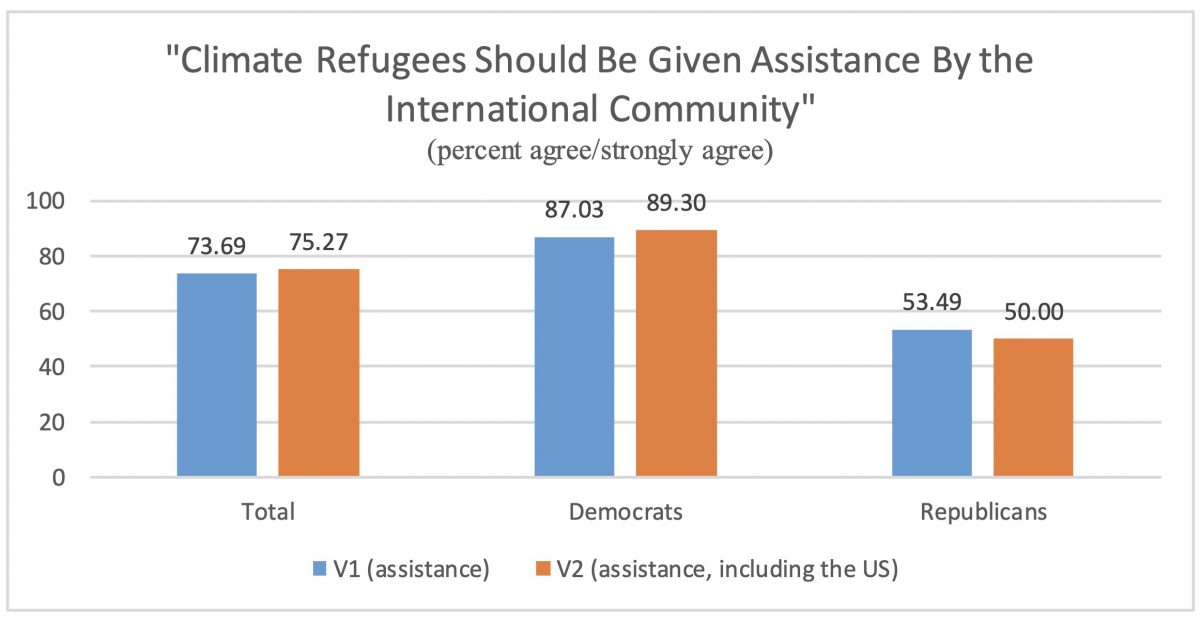
Climate refugees are those who are forced to leave their country due to sudden or long-term changes to their local environment, such as droughts, desertification, and rising sea levels that make it impossible to sustain human life in that area. The international community has not had a substantial response to the issue of climate refugees despite the clear existence of climate refugees and projections saying that the number of people displaced by climate change will increase. The United Nations released a ruling in January of 2020 that said people forced to leave their homes due to climate disasters can apply for refugee status, although the requirements to do so remain a substantial barrier. While this does prevent us from having precise data on climate refugees, data from the Internal Displacement Monitoring Center shows that the number of people displaced by natural disasters has exceeded the number of people displaced by conflict and violence every year since they started recording data in 2008.
We would assume that the American public would support assistance to climate refugees in the abstract, but that two broad factors could influence this support. First, we assumed that mentioning American assistance rather than international assistance more broadly would depress support for assistance. Secondly, we assumed a partisan division, with Democrats more likely to support such efforts.
To test these assumptions, we conducted a web survey via mTurk Amazon on March 11, 2020 (1,198 respondents). First, we provided all respondents with the following prompt:
Climate refugees are those who are forced to leave their country due to sudden or long-term changes to their local environment, such as droughts, desertification, and rising sea levels.
Afterwards, we randomly assigned respondents to evaluate on a five-point Likert scale (strongly disagree to strongly agree) one of these two statements:
- Version 1: Climate refugees should be given assistance by the international community.
- Version 2: Climate refugees should be given assistance by the international community, including the United States.

Overall and counter to expectations, we find strong support – nearly three-quarters of respondents – for helping climate refugees, even when the involvement of the US is mentioned. That framing has marginal effect on views suggests the public assumes that the US would play a role in any assistance to refugees, an assumption potentially held regardless of partisan identification.
In contrast, partisan identification accounts for a substantial difference in responses, with Republicans being much less supportive of helping climate refugees. Reasons for reduced support among Republicans likely includes ideological opposition to government spending in general and foreign aid in particular, and increased opposition to accepting refugees regardless of their origin or reason for leaving, while a growing nativist sentiment among some Republicans likely influences views of the plight of climate refugees elsewhere.
Substituting political ideology for partisan identification shows similar trends. Support for assisting climate refugees declines as respondents identify as being more conservative. These distinctions based on partisanship and ideology continued to hold when controlling for age, race, gender, income, attendance at religious services, and whether the respondent had traveled abroad.
While there is strong support for assisting climate refugees, there is unlikely to be policy agreement on who to help and how to help. For example, conservatives, who gave neutral responses (a three on the five-point scale) at higher rates, might be more inclined to oppose assistance when costs are specified, or when specific groups of people are specified for resettlement, especially those that resemble groups that have already been target for scorn (e.g. Syrian and Central American refugees). Policymakers can mitigate these concerns by forming international partnerships to resettle climate refugees from other countries and public education campaigns about the plight of specific climate refugee groups.
Nor do our findings address the larger debates of who is at fault for the rise of climate refugees. Nevertheless, our preliminary findings here suggest that the public is not inherently hostile to assistance to climate refugees or an American involvement to address their plight, both crucial steps necessary in developing a broader consensus.
Further Reading on E-International Relations
- Opinion – Updating the 1951 Convention for Refugees
- Surveying Opinion on Withdrawing US Troops from Afghanistan and South Korea
- Jus Post Bellum and Responsibilities to Refugees and Asylum Seekers
- Why are South Koreans So Opposed to Accepting Refugees?
- Problems with the Reintegration of Afghan Refugees
- The Conditionality of American Support for Sanctions on Russia